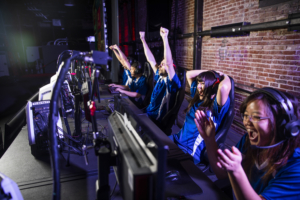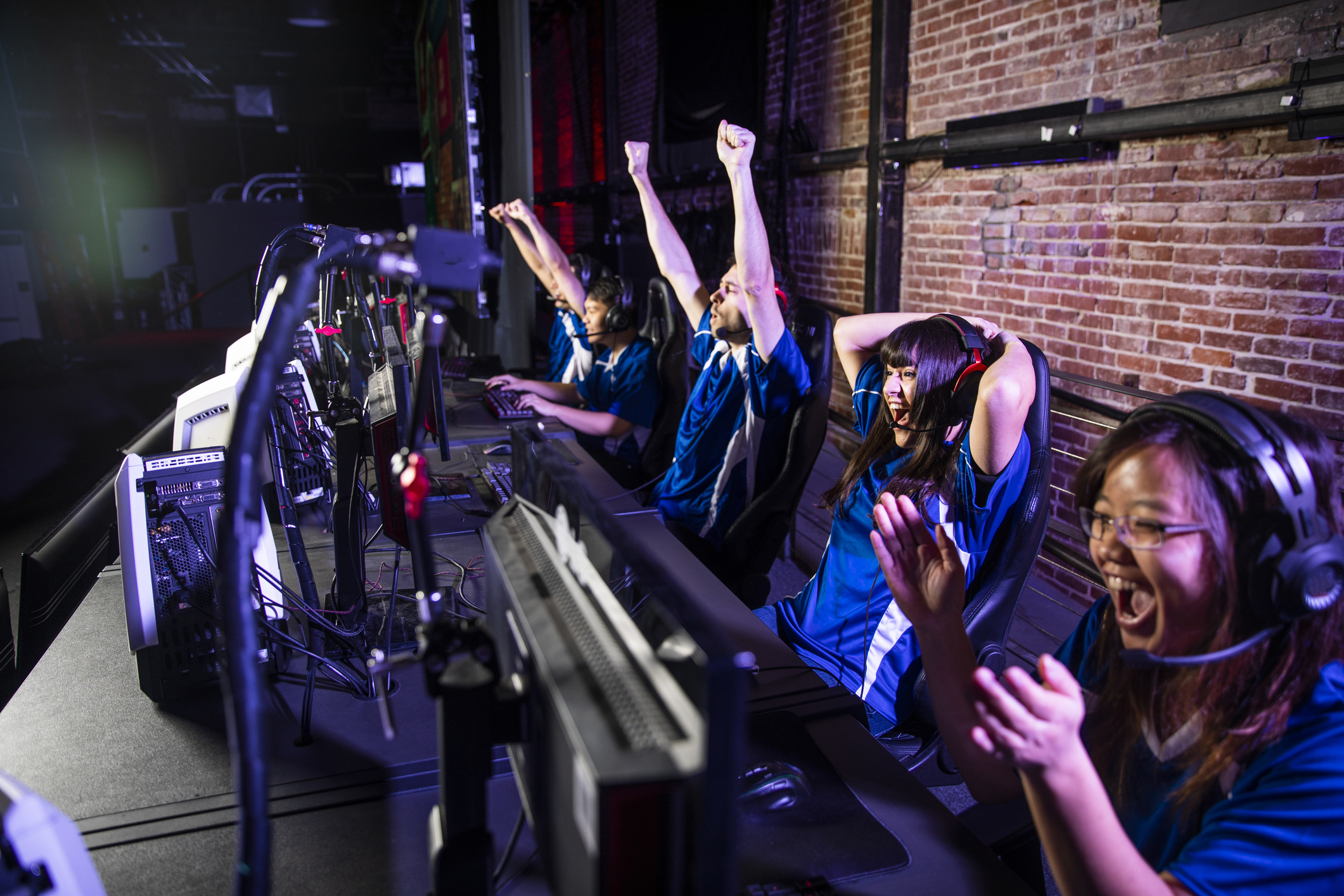Exponential changes in the technological landscape — particularly over the last two years — have altered what teachers and students experience in their learning environments. Industry leaders search for graduates that possess advanced technology acumen and also professional skills such as collaboration, communication, creativity and analytical thinking. Technology has consumed every aspect of the industrialized market and career and technical education (CTE) must contend with the growing gamification of curricular resources. CTE has a unique opportunity to capitalize on the science, technology, engineering, and math (STEM) roots embedded in this process of delivering gamified lessons. Academic esports offer a gateway to STEM-related career pathways such as game design and development, information technology (IT), engineering, web development, as well as orbital careers in sports marketing related fields.

How can we excite and engage CTE students in pursuit of fulfilling STEM careers? With academic esports!
One needs only to look at the size of the industry to understand its appeal. Worldwide, 2.7 billion gamers have made esports a $175 billion international industry. In 2021, more viewers tuned in to watch esports tournaments than NBA or NHL sporting events. Another platform, Epic Games, announced plans to sponsor $100 million in prize money for Fortnite esports tournaments in 2018 — almost as much as the $113 million of prize money awarded for all esports competitions in 2017.
And the opportunities aren’t just reserved for gamers, either. People in a variety of supporting roles contribute to team success, such as team managers, social media specialists and broadcasters. With a continually growing esports industry comes numerous and expanding career pathways. Esports athletes go on to become software developers, graphic designers, IT professionals, and more.
Further, research trends suggest gaming as a viable engagement tool and that, when taught in a safe academic environment, leads to successful student outcomes. A curriculum focused on ethical gaming, strategic thinking, teamwork, and scholastic application of esports can serve as a natural extension to career and technical student organization activities. This approach has proven successful in a variety of districts.
Gamers today, makers tomorrow
Researchers at Mastery Coding developed a blueprint for turning gamers into makers. Engaging students, piquing their interest in gaming, teaches technical skills as well as employability skills generally held in high esteem:
- Teamwork
- Leadership
- Strategic thinking
- Adaptability
- Tenacity
- Self-regulation
Students engaged in esports do so much more than play games. Educators channel their passion and curiosity and introduce them to the history of esports. Students learn how games are developed, and the business components involved in creating competitive and lucrative games. These are the connections that lead students to explore careers choice.
Gaming can revolutionize project-based learning.
“When teachers incorporate esports or gaming into a curriculum, they allow the students to learn and use technology,” wrote Gregory Rothwell and Michael Shaffer (2019) for Education Sciences. These are universal skills that employers so desperately seek in today’s employees. Academic esports provide learning experiences to enhance each of these skills. Introducing students to STEM studies through their passions for gaming can help them find relevance and a sense of agency in their education. Discover their next steps in career visions. Soon, youth will be able to place themselves in the 3D world of professions and experience future career roles.
Given the right tools and a little bit of guidance, the gamers of today will become the builders of tomorrow. Augmented and virtual reality are becoming increasingly popular, and CTE students are poised to be pioneers of that digital space. Students game at home, at school and with their friends. Now is the time for CTE to harness the power of academic esports and set learners up for success. Already, more than 200 universities offer esports as a competitive sport. And more than 175 offer scholarships. Combined with the fact that esports players overwhelmingly prefer STEM studies, the benefit for educational institutions becomes clear. Successful esports teams contribute to strength and skills in high-wage, high-demand fields such as engineering cybersecurity and IT.
By channeling students’ passions for gaming into college and career readiness we give them the tools necessary to be successful in a landscape changed by technology.
Summary
Recently, I spoke on the NCLA Podcast about career opportunities and certifications associated with Academic Esports. Many states and districts are beginning to discuss the academic benefits as well. Students as young as in seventh grade expressed a passion for technology and a desire to pursue careers in STEM because of learning about and playing games. This trend will only increase as our society becomes more virtual (whether by pandemic or by choice). Technology revolutionized the world, and the evolution will continue. And, though it is a monumental task, CTE educators must grow with the changing landscape. Because, together, we must seek to prepare a global workforce to solve the complex problems affecting our communities.
Jill Ranucci, Ph.D., is a college and career readiness advocate with an extensive background in CTE as an administrator and teacher. She earned a doctorate in teaching and teacher education/curriculum and instruction and education leadership from the University of Arizona; a Master of Science in sport physiology; and a Bachelor of Science in education with K–12 certifications in several core and CTE content areas. Now, Ranucci consults to support the development of high-quality curricular resources.







